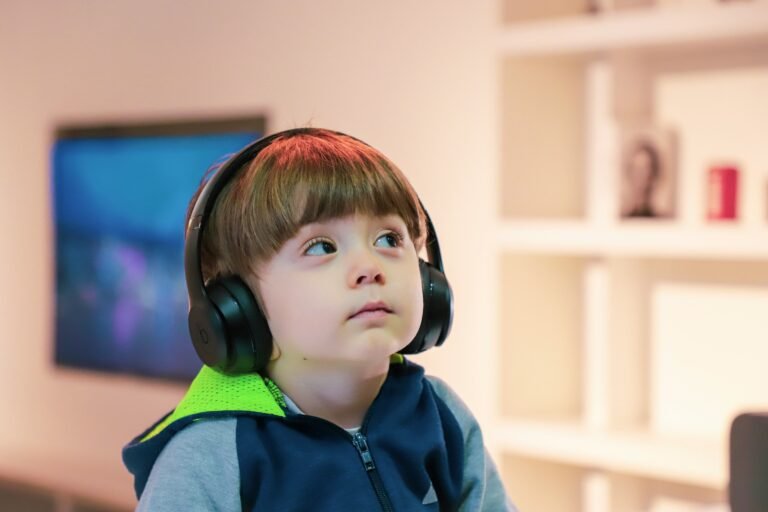How do I tell if I’m autistic?
Understanding yourself is a lifelong journey, and exploring whether you might be autistic can feel both overwhelming and enlightening. You might have noticed certain behaviors, quirks, or ways of processing the world that seem different from those around you. Or perhaps someone close to you has suggested it. Either way, diving into the question, “Am I autistic?” is a deeply personal endeavor that involves careful observation, self-reflection, and, often, professional guidance.
What Is Autism?
Autism Spectrum Disorder (ASD) is a developmental condition that affects how a person communicates, interacts socially, and processes sensory input. The term “spectrum” is key because autism can present in vastly different ways from one individual to another. Some people may have significant support needs, while others are highly independent but still experience challenges in specific areas.
If you’re wondering whether you might be autistic, the first thing to acknowledge is that autism is not an illness or something to “fix.” It’s a neurodivergent way of being—essentially, your brain works differently from the neurotypical majority. This uniqueness shapes how you experience the world, how you think, and how you relate to others.
Signs That You Might Be Autistic
When trying to determine if you’re autistic, it helps to break down some of the traits commonly associated with autism. Keep in mind that experiencing a few of these traits doesn’t automatically mean you’re autistic. Let’s explore some of these indicators in depth.
Social Interaction and Communication
Many autistic individuals find social interactions to be complex or draining. You might feel out of sync with others in conversations or struggle to pick up on social cues like body language, facial expressions, or tone of voice. Do you find small talk difficult or meaningless? Perhaps you prefer deeper, more meaningful conversations but still feel like others don’t fully understand you.
It’s also possible that you feel like you’re “masking” during social situations—consciously or unconsciously mimicking behaviors to fit in. Masking can be exhausting and might leave you feeling disconnected from your authentic self.
Sensory Sensitivities
One of the hallmarks of autism is heightened sensitivity to sensory input. Do you find certain sounds unbearably loud, certain lights too bright, or certain textures unpleasant to touch? On the other hand, you might have sensory-seeking behaviors, such as a strong preference for specific sensations, like rocking, spinning, or touching particular textures.
These sensory experiences can be overwhelming or comforting, depending on how your brain processes them. Sensory sensitivities might extend to taste, smell, or even temperature.
Repetitive Behaviors and Routines
Many autistic people find comfort in routines and repetitive behaviors. Do you have a daily routine that you follow rigidly? Do changes to that routine cause you significant stress or discomfort?
Repetitive behaviors can also include things like stimming—self-stimulating behaviors such as hand-flapping, rocking, or tapping—that help you regulate your emotions or sensory experiences. These behaviors are often misunderstood but are vital coping mechanisms for many autistic individuals.
Intense Interests
Autistic individuals often have deep, focused interests in specific topics. Do you find yourself immersing in a subject to the point of learning every possible detail about it? These special interests can bring immense joy and can also become an area where you excel.
Whether it’s a passion for trains, coding, a particular book series, or a scientific field, these interests might dominate your thoughts and provide a profound sense of purpose or fulfillment.
Difficulties With Executive Functioning
Executive functioning involves planning, organizing, and managing tasks. Do you struggle with starting or completing tasks, even when you want to? Do you find it hard to prioritize activities or manage your time effectively?
These challenges are common among autistic individuals and can significantly impact daily life. You might procrastinate on tasks that feel overwhelming or lose track of time when engaging in something you enjoy.
Emotional Regulation
Emotional regulation can also be an area of difficulty. Do you feel emotions intensely or find it hard to manage them? Autistic individuals might experience what’s known as “meltdowns” or “shutdowns” when overwhelmed.
A meltdown might involve outward expressions like crying or yelling, while a shutdown might involve withdrawal or silence. Understanding your emotional patterns can help you identify coping strategies.
Table of Common Traits
To help you organize your thoughts, here’s a table summarizing common autistic traits:
| Area of Life | Potential Signs |
|---|---|
| Social interaction | Difficulty with small talk, masking behaviors |
| Communication | Literal thinking, struggle with sarcasm |
| Sensory processing | Sensitivities or sensory-seeking behaviors |
| Routines | Resistance to change, strict adherence |
| Special interests | Deep, focused passion for specific topics |
| Executive functioning | Trouble planning, organizing, or completing tasks |
| Emotional regulation | Intense feelings, meltdowns, or shutdowns |
Steps You Can Take If You Suspect You’re Autistic
If these traits resonate with you, the next step is to reflect deeply on your experiences and seek more information. Here are some steps to consider:
- Self-reflection: Journaling about your behaviors, thoughts, and feelings can help you identify patterns. Reflect on your childhood experiences and current challenges.
- Online self-assessments: While not diagnostic, tools like the Autism Spectrum Quotient (AQ) test can give you a general sense of whether further exploration might be warranted.
- Research: Reading first-hand accounts from autistic individuals can provide invaluable insights and help you understand how your experiences align with theirs.
- Seek a diagnosis: A formal diagnosis can offer clarity and access to resources. You can pursue this through a licensed psychologist, psychiatrist, or developmental specialist.
Benefits of Seeking a Diagnosis
Understanding your neurodivergence can be transformative. Here are some benefits:
- Self-understanding: A diagnosis helps you understand why you think, feel, and behave as you do.
- Validation: Knowing you’re autistic can validate your experiences and alleviate self-doubt.
- Access to support: A diagnosis may help you qualify for accommodations at work or school and connect with support groups.
- Community: Many autistic individuals find a sense of belonging within the neurodivergent community.
Table of Self-Exploration Tools and Resources
| Resource Type | Examples |
|---|---|
| Online self-assessments | Autism Spectrum Quotient, RAADS-R |
| Books by autistic authors | “The Reason I Jump” by Naoki Higashida, “NeuroTribes” by Steve Silberman |
| Support communities | Autistic-led forums, local advocacy groups |
| Professional diagnosis | Licensed psychologists, psychiatrists |
| Journaling prompts | Reflection on sensory experiences, social interactions, and personal interests |
Frequently Asked Questions
How is autism diagnosed?
Autism is typically diagnosed through a combination of assessments, interviews, and observations. A professional will look at your developmental history and evaluate behaviors that align with autism criteria. This process often includes questionnaires and input from people who know you well.
Can I be autistic if I had no issues as a child?
Yes, many autistic individuals go undiagnosed in childhood, especially if they masked their traits or had milder symptoms. Some traits may also become more noticeable in adulthood due to increased responsibilities and social expectations.
What if I only have some traits of autism?
Autism exists on a spectrum, and not everyone fits every criterion. However, having some traits may indicate neurodivergence or overlapping conditions like ADHD. A professional evaluation can provide clarity.
Can I self-diagnose autism?
While self-diagnosis can be a useful starting point, a formal diagnosis from a qualified professional provides clarity and access to certain resources, such as workplace accommodations and therapy options.
Is autism a disability?
Autism is considered a disability under the law in many countries, but whether someone identifies as disabled often depends on their personal experiences and challenges. Some people see autism as part of their identity rather than a disability.
Final Thoughts
Exploring whether you might be autistic is a significant and worthwhile process. Remember, the goal isn’t to fit into a label but to better understand yourself. Whether you pursue a formal diagnosis or find your answers through personal exploration, the most important thing is to approach this journey with kindness and curiosity toward yourself. Autism is a spectrum, and every individual’s experience is unique. Taking the time to understand your traits, preferences, and challenges can lead to a richer and more authentic life.






